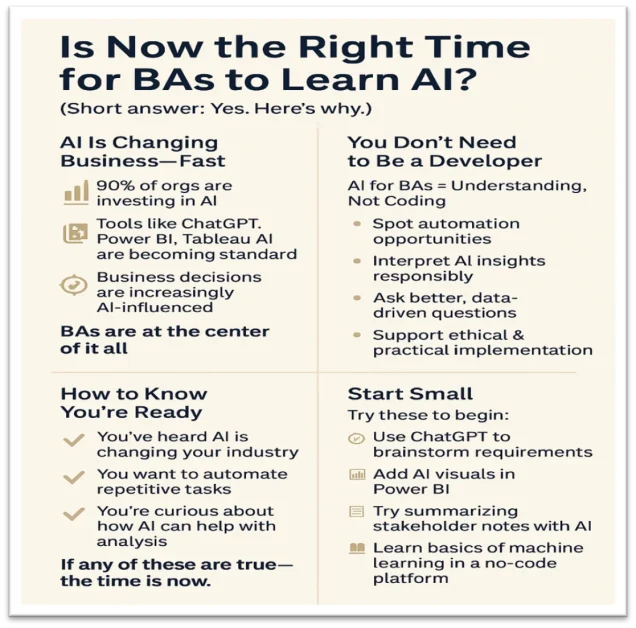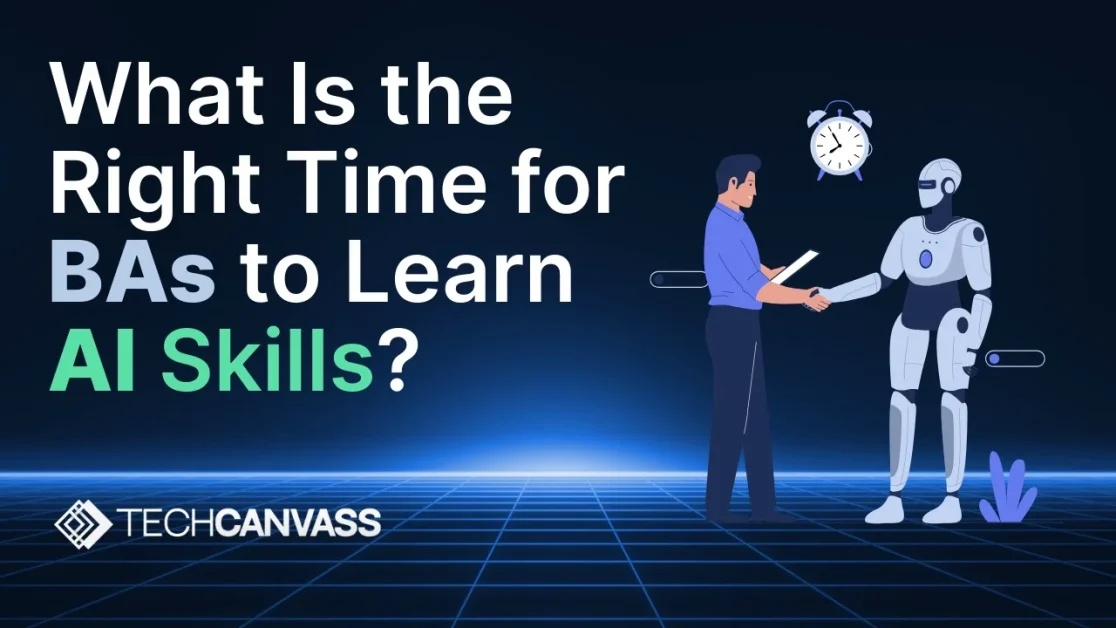If you’re a business analyst, chances are you’ve already seen AI creeping into your day-to-day — whether its dashboards getting “smarter,” customer insights becoming more predictive, or teams suddenly throwing around terms like “machine learning” and “LLMs.”

So here’s the million-dollar question:
When should you start learning AI skills?
The short answer: yesterday.
The real answer: now is perfect.
AI isn’t something only for developers in hoodies or PhDs with Python scripts. It’s increasingly becoming the co-pilot for decision-making — and business analysts are perfectly positioned to lead that transformation.
Gain essential AI skills with our AI certification for business analysts. To understand the broader impact of AI for business analysts, read more here.
Why?
Because we’re already asking the right questions. We already understand the business context. And we’re the bridge between what the business needs and what technology can do.
Now imagine supercharging that role with AI.
What does “learning AI” even mean for a BA?
It doesn’t mean becoming a machine learning engineer. It means:
- Knowing how to interpret AI-generated insights
- Understanding the basics of predictive modelling or NLP
- Using AI tools to automate tasks like data analysis or requirements gathering
- Being able to spot where AI can solve a real business problem — and where it shouldn’t
AI can’t replace human judgment, empathy, or business intuition. That’s your edge. But it can be your assistant — helping you spend less time gathering data and more time making sense of it.
Gain essential AI skills with our AI certification for business analysts. To understand the broader impact of AI for business analysts, read more here.
Ask yourself:
- Do I want to stay relevant in the evolving job market?
- Am I curious about how AI can make my work more impactful?
- Do I want to be the one explaining AI to stakeholders, not the one asking what it means?
If yes, then this is your green light.
Start small. Pick a use case. Play with tools like ChatGPT, Power BI with AI visuals, or no-code ML platforms. Even understanding AI terminology helps you ask better questions during stakeholder interviews or data discussions.
The future of business analysis isn’t about doing more — it’s about doing things smarter.
And AI is a big part of that future.


